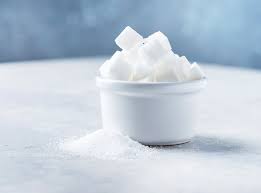Sugar is, arguably, a staple in many of our households; we add it to our morning coffee, use it to power through the post-lunch lethargy and end the day with some sweets or chocolate. We understand that sugar can’t be healthy and there are many detrimental impacts of consuming it. Not enough of it is lethal but too much of it is unhealthy for our skin, our waistline and our teeth. Now that is only a drop in the bucket; sugar can also cause potentially damaging short-term as well as chronic detrimental cognitive and physiologic outcomes.
Worse still, there is sugar in almost all foods, and some branded ‘healthy’ foods are stuffed with sugar. One should take his/her time and try to learn what qualifies as an ingredient in the foods he/she buys, and should try to make it a habit to count the quantity of sugar used in a day.
But what is going on in our body when we consume too much of it?
The following are the dangerous and undesirable effects of the consumption of the sweet crunchy cereals:
Effect of Mood Swings by taking sugar
I suppose when you hear about sugar causing health complications, it is commonly in a physical aspect but in fact, sugar also affects us mentally.
We’ve all felt the jitters; that fast-paced high we get when we consume something sweet and sugary in a short space of time. This feeling stems from sugar signaling the brain to produce endorphins including serotonin and dopamine which is the reward chemical in the brain and spills through the body making you feel happy.
However that remains for a certain period and after almost about 1. 5 hours those feelings starts decreasing and we more towards a crash. These maintain our energy and reduce levels of fatigue and anxiety until they wear off again and all that is left is the remembered experience. As with any other addictive substance, we find ourselves going back for more sugar, to try and recreate that first high we received. Many such fluctuations and drops in energy levels can be hard to handle, which puts you in a bad temper most of the time.
Sugar can cause Inflammation
Sugar is also an inflammatory food; when we eat sugars, it encourages production of fatty acids by the liver that when ingested lead to inflammatory reactions.
It is also known that gut has its own brain and its own nervous system, it has neurons and neurotransmitters which can help to control emotions and feelings. Apparently, the extra sugar triggers inflammation of the gut’s second brain leading to poor functioning, resulting in effects such as depression, anxiety, and irritability.
Sugar weakens your Immune System
Basically inflammation of the gut does not only influence our moods. The gut is armed with 70% of an individual’s immune system, with cells whose role is to develop antibodies to keep the body healthy.
When we eat sugar these cells become inflamed which in turn reduces there antibody production = our bodies chance of fighting of illness and disease. You should also load up on foods that are pro biotic like kefir and sauerkraut while avoiding white processed sugar as much as you possibly can.
Sugar makes it impossible for your body to Absorb Nutrients
There’s no doubt that sugar wreaks havoc on the gut, which is why it comes as no shock, that sugar can actually hinder your body’s ability to properly absorb the nutrients it needs. For instance, Vitamin C plays a role in the growing and repair of body tissue, syntheses of collagen, the body’s immunity mechanism, absorption of iron and maintenance of the bones, cartialages and teeth. But if excess glucose is present it inhibits the penetration of antioxidants into cells and reduces absorption by up to 80% hence your cells do not get what they need to keep you healthy.
Sugar impacts on the absorption of Vitamin D as well. Vitamin D is known to help keep your bones and joints, as well as your immune system, in good working order; there is also evidence that vitamin D may affect the body’s ability to respond to the hormone insulin. Findings point to the fact that while honey, sucrose and glucose have no impact on vitamin D, fructose breaks down the vitamin by interfering with the enzymes that metabolise the nutrients; thus creating a vitamin D deficit.
The Harms of Sugar on our skin
Consumption of this carbohydrate causes Acne
We now know internally how detrimental sugar is for our body; let’s see how it impacts us on the outside, particularly our skin.
Many of us were told that consumption of too many sweets will introduce us to the world of pimples. Although this may sound like an old wives’ tale, there is some basis or truth to it, scientifically speaking. From what we know, foods and beverages containing sugars raise the levels of sugar in our blood; following this, the body produces more oils and androgen – a steroid hormone. Excess oils and hormones on the skin as well as already inflamed cells are sure to cause spots and acne. A good example is skin care products, the costly products do not help; diet and controlling the intake of sugar is the first step to clear skin and should be the first thing we consider when treating problem skin.
Unfortunately, one of the types of HPS that make one age early is through taking sugary products.
High sugar intake also leads to acne problems And if that is not enough, then high sugar intake also leads to early ageing. According to the stages of aging, human bodies lose elasticity and flexibility; elastin and collagen production decreases and wrinkles appear.
It has been proven that sugar is able to bind with protein or fat in the human body and produced something known as AGEs or Advanced Glycation End Products. These AGEs then bind to the collagen and elastin proteins and this will accelerative the ageing process. It also seems to be the case that AGEs can also influence the enzymes that produce your natural antioxidant enzymes. This can leave you vulnerable to damage from free radicals such as pollution, blue light and UV light all of which accelerates skin aging.
Intake of high sugar diet results into dry skin, dark circles which are signs of old age and cannot be easily concealed. Any food taken will with time show differently, so therefore, one needs to be very careful. Take natural foods that are rich in minerals and vitamins for diet in order to help keep your skin moisturized.
Let’s put an end to harms caused by sugar.
Looking for sugar substitutes is not a very viable solution because the real problem is self-discipline and control, so here are very useful tips on how to stop eating sugar.
Losing unhealthy habits and addictions is never going to be easy; we know we should avoid sweets yet we take them anyway, well there some researches that suggested that sugar could be as addictive as cocaine. To most of us, sugar is not just a craving but rather food that makes one feel great the moment everything seems to be going wrong or a food item that is always nearby. When you are eliminating sugar from your diet, don’t make it too hard for yourself; start slowly taking it from day to day, and do not scold yourself if you give in to temptation.
The below tips are worth bearing in mind as you being to eliminate sugar from your diet:The below tips are worth bearing in mind as you being to eliminate sugar from your diet:
- Replace some of the refined processed carbs which eventually turn to sugar such as white breads and pasta with their wholemeal counterpart. Wholemeal spelt flour is as good as white flour and it should be used in cooking. I found spelt and barley to be perfect substitutes for rice.
- Watch out; look at the ingredients in packets and read how many grams of sugar are in a serving. According to different Organizations, sugar intake should not exceed 30g a day or should be 7 teaspoons in a day. 5 teaspoons of sugar.
- Don’t let yourself reach for something sugary when you start feeling sleepy around 4 in the afternoon; instead stick to a small piece of dark chocolate, some nuts or fruits.
- Drink more water and reduce on the intake of carbonated beverages. Surprisingly, even those beverages that are labeled as ‘sugar-free’ or ‘low calories,’ contain rather high levels of sugars and glucose.
- Sugar laden tea or coffee should also be discouraged and instead make a point of taking sugar-less coffee in the morning. It is always easier to maintain the momentum once one has set for themselves a good precedence and that sets up right in the morning.
Sugar & You
Saying no to sugar is not going to be a walk in the park however, the implications are serious hence the need to give it a shot. We understand how much of a concern this is and so we have in the past prepared articles on foods that contain healthy sugars that can also assist people who are trying to reduce the amount of sugary foods they consume. As soon as you start to gradually remove sugar you will level out your mood swings and gain both mental and physical energy. Begin to actively work towards feeding your body good, pure foods and start nourishing it from within and see what wonders the body can do for you.


